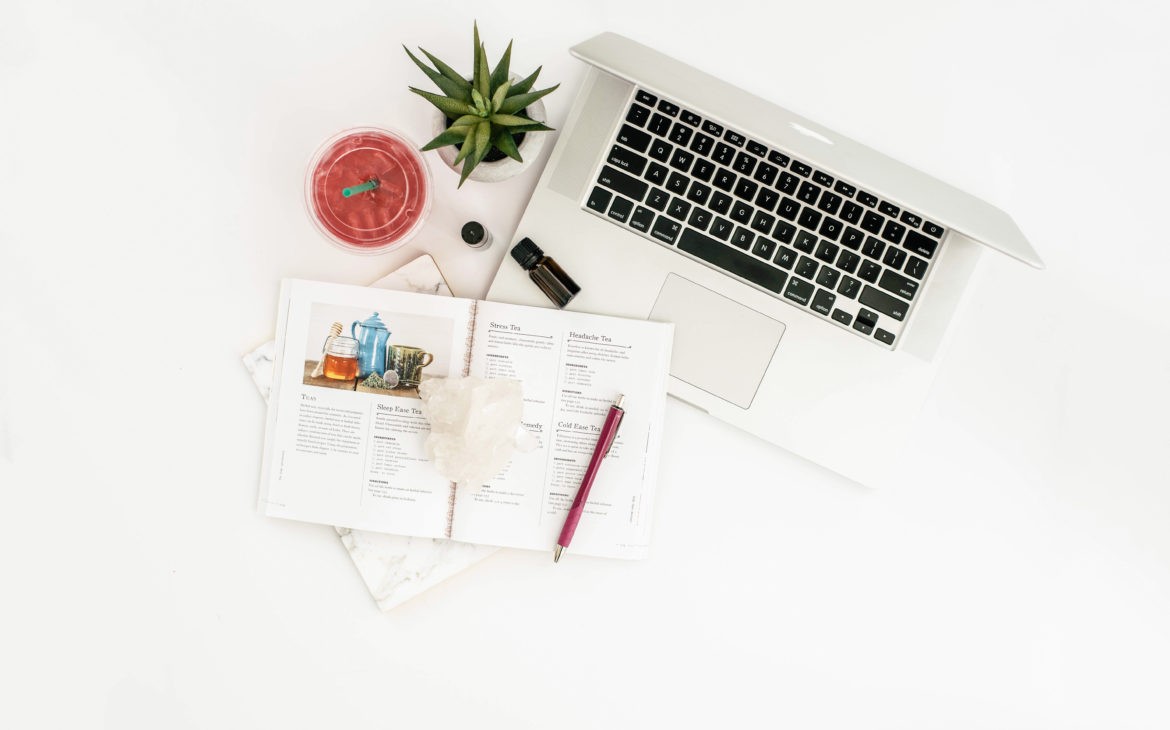Students! We often love studying at home more than anywhere else. Am I right? It totally makes sense though.
There’s a countless number of benefits to independent study in the comfort of our own homes – it’s the best place to be as productive as you can be.
At home, you’re the boss. You work at your own pace and you set your own hours. At school or at work, your routine is more rigid and controlled – get this, this and this done in XYZ hours. Yeah, that’s not always fun.
That’s why we tend to prefer studying at home. There’s more flexibility with your working hours, you get to revise what you want and you can focus on your own projects.
If we’re to get some studying done anywhere, it may as well be at home.
Oh yes, and you save money too. During lockdown, I saved A LOT of money – I wasn’t travelling to and from school on public transport, or buying food every so often, or purchasing revision materials.
My bank account loved that.
However, studying at home isn’t always fun and dandy. Contrarily to being in the comfort of your own home, it can also be hard to stay motivated. If you’re comfortable, you’re gonna find yourself getting distracted and unbothered a lot more.
Makes sense.
No rules = distractions = procrastination = feeling unmotivated.
Not to mention the fact that commotions and interruptions can seriously peak when at home. Those in our families, bless them, are HUGE distractions. All in agreement, say I.
It can also be hard to focus on tasks and assignments at home, and let’s be real, we don’t all have effective environments that are suitable for studying and revision.
Studying at home can be absolute bliss… or miss.
But it’s not always about that. It’s more so optimising what you do have, and turning into organised, productive studying.
So, you want to be productive during the time you spend studying at home. You’re in the right place.
I’m going to cover a lot in this blog post – it’s a really extensive and detailed list of my top tips for studying, productivity, organisation and motivation at home.
Want to get out of the habit of waking up in the middle of the day, working on your bed, sleeping through Teams meetings, getting distracted by your phone, and doing a little bit absolutely zero work?
Keep reading, darling.
Oh, hey! You there! Before we get any further, make sure you join my email list for news, updates, exclusive freebies and more!
![]()
Sections In This Post
1. Get into the habit of waking up early.
When at home, it’s very easy to lose the sense of an established routine. We often want to have a lie-in and stay in bed for a few extra hours than we’re supposed to.
While sleeping in is a great way to relax in the morning and destress, it’s not always very effective for productivity.
Early mornings are very efficient if you’re looking forward to a day of productive studying. This is because you’re more motivated at the start of a fresh new day. Think of it this way – are you more likely to get more work done at the start of a day when you can maximise your productivity, or would this be the case after an unproductive morning?
It’s definitely the first one for me.
Some days I can’t be bothered to get out of bed. Even if I wake up at 8AM, I could EASILY spend a couple more hours mindlessly scrolling through social media before actually beginning my day.
This is NOT the way to go.
In the morning, you have a fresh mindset and a renewed sense of motivation – why ruin your fresh headspace with early morning TikTok?
Jumping straight into your morning routine (which doesn’t include social media) is a good way to keep your head in a productive mindset. Early mornings are great if you want to get more done and fit more tasks into your schedule, so you’re going to be more motivated to get stuff done.
>> RELATED POST: 5 Easy Ways To Improve Your Study Habits
Mind you though, I don’t mean to study as soon as you wake up – although you’re going to be in a good headspace, you’re also going to be half asleep.
If you slowly ease yourself into your routine, you’ll be in a much better place for studying and productivity later on.
Try waking up and getting out of bed at 7 or 8AM, and then make your bed, make yourself a cup of tea or coffee, and have a nice breakfast. Set yourself some goals, and then make a start on your studying. You’ll be a lot more productive with a nice, fresh start.
One key to success is to have lunch at the time of day most people have breakfast.
![]()
2. Set and stick to a schedule.
Setting a specific time for when you study each day is a great way to regulate your study time. As I mentioned before, when at home, a sense of structure often goes completely out the window. However, if you stick to a schedule, you’re taking your studying a lot more seriously, and you’re therefore going to get more done.

You can expect when to study, and you make it happen.
A timetable is a really useful tool to set a organise your time and schedule your breaks at home, especially if you have multiple subjects to study for.
During Year 11, I had a revision timetable to lay a bit of structure for when I was going to revise for my GCSE exams. It was a beneficial sheet of paper that helped me out a ton, and you can download here (PDF) or here (Word) for free!
Or you can use Adapt – it’s an amazing revision timetable app that lays out all the tasks you should complete in time for your GCSEs, and tracks your progress. I highly recommend it.
>> RELATED POST: 8 Game-Changing Apps That You Need To Ace Your GCSEs
A few hours of the day dedicated to when you study is an easy way for you to be more productive.
Now that I think about it, sticking to your school timetable is a quick and easy alternative to setting a schedule – the structure is already set for you and the studying times are reasonable (5 hours with a few breaks in between isn’t as bad as it sounds!).
During lockdown, I used my school timetable for a few weeks as it was the easiest way to stick to a schedule that I was already used to. This made sure I didn’t go on for too long without any work to do.
Now that you’ve set a schedule, make sure you actually stick to it. It does require a bit of self-discipline and motivation, but if you can do it every day at school, I’m sure you can do it at home too. Plus, if you don’t have a schedule in place, it’s just more time spent not studying, which isn’t very productive and I’m sure that’s not what you want.
Oh yes, not to forget the fact that us students (aka regular offenders of procrastination) like to make ourselves feel guilty after a day of doing nothing but social media, Netflix and other unproductive activities. Without a schedule, you’re just going to fall into this pattern of unproductivity, and you’ll therefore get frustrated and demotivated quickly due to your lack of work.
Be honest with yourself. Do you need a bit of discipline and structure with a strict schedule, or do you work fine with a flexible one?
While I sometimes get distracted quite easily, I find strict schedules quite restricting, so I tend to just go with a flexible one each day and see how it goes – and it works well!
You’ll know the best times for you to study and how long you can study for. Decide when you’re most efficient, energetic and motivated, and optimise that when creating your schedule.
Also, it’s probably a good idea to leave out your weekends from your timetable, or place as little activities and tasks in them as possible. It’s important to have a couple of days where you can relax and unwind from a busy week, and that’s what weekends are for. Remember, it’s all about optimisation!
![]()
3. Plan your day out each morning/the night before.
An effective productivity habit to get into is to plan out your tasks and activities the night before, or at the start of the day. You’re basically setting yourself goals on what you want to achieve, and you’ll be more motivated once you actually know what you want to get done.
In addition, planning your time avoids you wasting your time later on. It’s common to not know what to do next without a plan in place. However, with a plan each day, you can prioritise and stay focused on your studies, even at home.
Setting a plan streamlines your working day.
It’s super easy to plan your day effectively. I like to use simple lined sticky notes and turn them into to-do lists, which is just one way to do it.
Creating detailed to-do lists is efficient for me because it breaks all of my tasks down into manageable chunks with an idea of how long I should roughly spend on each one.
Oh yes, and I get the satisfaction of ticking a task off at the end.
![]()
4. Use a planner.
To-do lists are great for short-term goals, but for the long-term, I totally recommend using a planner.
Planners are excellent for weekly, monthly and even yearly planning – they’re so useful in many different ways, it makes investing in a planner so worth it!
There are a few great ones out there, but my favourite academic planner has everything a student needs to effectively track assignments, create prioritised task lists and schedule deadlines. This increases organisation and productivity, and therefore motivation.
You’ll want to complete everything you write down, and you make it happen.
Plus, everything being in one place is surprisingly handy – you aren’t going to keep the little to-do lists you create over a long time, but planners are good to look back on unfinished tasks or just for reminiscence on your handwriting in the past.
If you aren’t looking for a monthly or yearly planner, there are a ton of weekly planner printables out there for you to use. However, it’s important to find the one that’s PERFECT for you (printable designs are a big deal!).
After giving up on my search for a weekly planner that I liked, I decided to make my own, which you can now grab too, all for free!
![]()
5. Get dressed for the day.
Avoid studying in your pyjamas. If you want to be in the right headspace and get the most out of the time you spend study, you should actually make an effort to look presentable. You’ll be a lot more motivated to be productive, for sure.
When at home, it’s SO easy to just stay in your sleepwear all day, but it’s not the best way to go if you want to get some revision done. Instead, have a shower, put on some comfy clothes (not pyjamas) and go on with your day.
If you get into a habit of this, you’ll feel motivated to study more regularly.
It’s hard to get up at 6AM when you’re wearing silk pyjamas. Share on X
![]()
6. Have a designated study space.
By this I mean an organised, distraction-free desk, preferably, but it really can be anywhere.
Your study space could be your kitchen table, or your living room, or your home office. Once you’ve found a place that works well for you, designate it to your studies and stick to it. It creates a sense of regularity and, for many, comfortability.
In addition, if your study space is neat and organised, you’ll be able to concentrate and focus a lot better on your studies, and you’ll therefore be motivated to keep studying. If your desk is cluttered and messy, however, it’s going to cloud your mind and your ability to think well.
Unorganised spaces are icky and so not helpful in the long run. Ever lost something in a pile of paper, sheets, and a disorganised mess? Yeah, good luck finding it again.
Also, if you have a study space that you can stick to, it becomes personal to you. You can decorate it and create ways for you to become comfortable to study in it, such as with candles, cushions, music players, etc.
Personalising your study space at home is something we don’t get the pleasure of at school or at work, so take advantage of it. It’ll motivate you to study at your desk more.
![]()
7. Switch up your study space from time to time.
However, while it’s great to stick to one space for your studies, sometimes it’s also good to switch up your environment, especially when unmotivated. After a while, being stuck to the same corner every time you open your textbook can be routine and mundane.
>> RELATED POST: 10 Top Tips on How to Study When You Feel Unmotivated
If you lose motivation and are becoming less productive, change your study environment. This can be in big ways, such as by working somewhere completely new, or this can be in subtler ways, such as by moving the décor on your desk around or changing your laptop background.
Doing so will not only restore your motivation to study, but it will also allow you to look at your work in a new perspective (this is very useful when it comes to things like Maths problems).

I love the Google Chrome extension Momentum for this reason – every day it shows a new beautiful photo for my Chrome background, along with a motivation quote and mantra. It’s like a new reason to keep studying and achieving your goals each day.
![]()
8. Take your study time seriously.
Let’s be real. You’re at home. No rules and no restrictions. Any sane person would use this as an opportunity to do what they like, and this probably doesn’t always include studying.
However, if you’re at home and you have work to get done, assignments to complete, deadlines to meet, etc. it’s probably a good idea to discipline yourself a bit more and take your studies more seriously.
This can be done in a countless number of ways. One way is removing your distractions. If your phone is nearby, you’re TV is on and your laptop isn’t being used for your work, you probably aren’t taking your work seriously enough.
Instead, if you know you get distracted by your phone easily, remove it from your reach completely. I mean putting it in a whole other room.
And that’s on beating procrastination. Period.
Out of sight, out of mind.
For a person who gets distracted easily, funnily enough, my phone doesn’t distract me that much, so I’ve disciplined myself to keep it nearby for revision purposes ONLY (I like to use revision apps as they’re surprisingly REALLY useful!), and I use Forest to regulate my time spent studying, using the very effective Pomodoro Technique (totally recommend! In fact, I’m using it to write this blog post!)
Another way to take your studying at home more seriously is to create an environment of study. As mentioned before, an organised, quiet and distraction-free space that is dedicated to your work is the way to go for maximum productivity.
Although, you should probably avoid dedicating this space to somewhere like your bed. It just promotes an unproductive mindset and, for me, sleep.
![]()
9. Get your family to respect your study time.
Regarding distractions, technology isn’t always the sole source of unproductivity (believe it or not). Sometimes it’s your own, beloved family.
Dramatic.
But seriously, parents can be equally as annoying as siblings. I love my family, but when it’s time to study, disturbing me gets me cranky!
While you can just politely ask your family to kindly leave you be when you’re studying, they probably won’t listen (or maybe it’s just mine!).
An easy fix to this is to close your door and use noise-cancelling headphones or earphones. I study quite well while listening to music, so as soon as I’m about to start studying, I simply put my earphones in, press play on my Spotify playlist, and let the studying begin.

Sometimes I use noise-cancelling headphones too – they’re great for hardcore studying when you really want to block out any background noise.
You’ll also find that closing the door and wearing headphones is a signal to leave you alone, regardless of whether you’re listening to music or not, and if anyone is to ignore this, they’ll soon realise that you’re serious about studying when you ignore can’t hear a single thing they say.
![]()
10. Get all chores done beforehand…
…or schedule them for a specific time afterwards, so that you know they’ll be done when the time comes.
This tip is quite underrated and very important. If you leave your chores until after you finish studying, you won’t get the satisfaction of relaxing for the rest of the day, with no more work to do. You’ll still have work to do.
Plus, you don’t want the burden of unfinished tasks to be clouding your mind while your studying. If you get everything done before you study, you’ll be able to focus solely on the work in front of you, and look forward to your time to relax afterwards.
![]()
11. Take regular breaks.
When at home, it’s super easy to lose regulation to your studying. You’re not at school or work, so you don’t have periods or time blocks to your studying – it’s therefore very easy to get carried away with your studies, and this isn’t necessarily good.
I don’t about you but without a break after a long time, my idea of studying turns into procrastination and social media. I found this to be really common, and here’s why:
Your brain can only function a certain amount of information at a time. Without breaks, you’ll find it hard to memorise and retain all the information you just learnt.
Furthermore, without breaks, you’ll get tired, stressed and irritated easily – nothing you’re studying is staying in your brain and it’s a very frustrating feeling.
Studying smart and not hard becomes relevant here. There’s no point studying for long periods at once, thinking you’re getting more done when really, you’re getting less done.
No one can effectively work for 3 hours all at once. However, if you have a few breaks here and there, you can regain your focus and energy, as well as giving yourself a chance to clear your head from anything cluttering it for too long.
Therefore, working in regular time slots, with a good balance of small breaks and longer breaks, is a great way to work effectually. You can do this with a revision timetable or schedule – they with regulation really well.
Another quick and easy solution to this is to implement the Pomodoro Technique into the time you spend studying. You may not have the time to use this very efficient time management technique at school, but at home it works a charm. The Pomodoro Technique effectively maximises productivity and treats time as an ally to get things done.
>> RELATED POST: What Is The Pomodoro Technique?
Lastly, when on a break, try to physically remove yourself from your study environment. This is a great way to clear your mind, as well as introduce fresh ideas and perspectives into it.
You could go for a walk, or listen to music in a different room. You could chat to friends or even take a nap. Anything to temporarily distract you from your work and provide a relaxing contrast to your recent studying.
![]()
12. Use online resources.
The Internet is a big place. Literally.
When studying at home, you may feel as though you don’t have access to useful resources, such as textbooks and teachers. It’s totally okay to feel like this, but remember that there are A TON of amazing, free online resources out there – you’re bound to find a few that can help you with what you need.
I could list a few GCSE online resources off the top of my head right now that are super useful and completely free to use (Seneca, Quizlet, BBC Bitesize, the list goes on. I’ll definitely be making a blog post on it, so look out for that.).
However, while the Internet is massive and there are loads of great resources out there for everyone to use, you have to be careful about the content put out there – you don’t want to take information from just anyone. That’s why reading and thinking critically and explicitly is a good study skill to develop.
You’ll find that many people are sceptical of online sources like Wikipedia. I think that as long as you critically assess what the sources tell you and make an educated judgement on how genuine it is, you’re good to go.
Plus, if you develop this skill, finding sources that you can critically assess counts as quick ways to make counter-attacks or evaluations in any potential essay writing (quality tip right there).
>> RELATED POST: 13 Tips on How To Study Smarter, Not Harder
![]()
13. Try not to rely on the Internet too much.
While it may seem as though I’m now contradicting myself, just hear me out.
Studying at home often results in a massive upwards spike in screen time. It makes sense though, right? At school, mobile devices are most likely banned, and we have our teachers and school resources to provide all the information we need.
However, at home, we’re left to our own devices.
These devices can be super useful for our own revision though, so that’s a good thing. However, productivity can be maximised if we minimise our time spent on the Internet.
For example, instead of completing a Maths past paper online, print it out before your study session and set your space up, ready for you to complete it by hand. This is a much better method, as it’ll really help your recollection and understanding of the work.
You’ll find that the Internet is a great place to locate these resources, but you won’t always need it from that point onwards.
Or perhaps you need to complete a few tasks online. Using web blockers on social media and distracting sites is a great way to avoid yourself from getting disrupted. Once again, Forest has this great feature and I use it all the time, to prevent myself from accessing Instagram or Twitter.
Despite all this, it’s still important to take frequent breaks from the computer from time to time. Things like computer-eye strain and RSI can be caused by long periods of screen time, which isn’t healthy. You can read more about this on a very informative and helpful blog post, here.
![]()
14. Stay connected with other people.
As I mentioned before, it’s easy to get carried away with your studies when studying at home. You can cut yourself off from other people from long periods of time without even realising it!
I do this sometimes – if my phone is hidden somewhere and I’m immersed in my work, I’ve basically gone MIA on social media for a short period of time.
This is good sometimes – you aren’t getting distracted and you’re focusing on your work. Keep up the great work! However, connecting with other people is just as important. By other people, I mean your parents, friends, peers, teachers, tutors, you name it.
Education-wise, it’s good to ask for help from these people if you need it, which is why it’s important to stay connected with them regularly. Doing so also enhances you’re learning experience, as you’re gaining fresh information and ideas from other perspectives, which is super useful.
There are plenty of platforms that are optimised for staying in contact with others, for educational purposes. I use Edmodo and Microsoft Teams, but I’ve also heard of Zoom, Big White Wall, Skype, and so on. There’s a ton out there, and they all allow you to stay connected and keep socialising with others.
Plus, these platforms and networks are particularly effective if you use them for informal discussions with peers and teachers. Like I said, new perspectives, fresh mindset.
You don’t even have to use educational platforms though. Setting up a Whatsapp group or a Snapchat group chat with friends is just as great – you can help each other out and share insightful study tips with each other.
If you change the way you look at things, the things you look at change.
![]()
15. Reward yourself for your work.
The last, but definitely not least, tip on studying at home, is to reward yourself. I mean, come on, you’ve come this far already. You’ve scheduled your time, disciplined yourself, set yourself goals. When you complete those goals, it’s only right that it calls for a hard-earned reward.

This can be absolutely anything you desire (within limit of course). I’m thinking your favourite snack, movie, computer game, anything. Of course, if you have other ideas, then that’s great too.
Rewarding yourself acts as an incentive to motivate you to complete your tasks and goals, and in turn, complete more tasks and goals. It’s a never-ending cycle of motivation and productivity.
In addition, you’re giving yourself a pat on the back, and no one else deserves it for achieving those goals more than you. You go girl (or boy)!
![]()
Your Takeaway…
You see? It’s possible to get the most out of your study time AT HOME.
I get it – we all get a bit too comfortable at home, and we get distracted a little too often. However, if you implement these planning and organisation tips, you’re gonna be a ton more productive.
I even threw in a few study tips at the end. Now you know how to utilise productivity strategies and effective study techniques to ace your class from your home. Period.
We’ve covered a lot, so let’s quickly recap:
- Get into the habit of waking up early.
- Set and stick to a schedule.
- Plan your day out each morning/the night before.
- Use a planner.
- Get dressed for the day.
- Have a designated study space.
- Switch up your study space from time to time.
- Take your study time seriously.
- Get your family to respect your study time.
- Get all chores done beforehand.
- Take regular breaks.
- Use online resources.
- Try not to rely on the Internet too much.
- Stay connected with other people.
- Reward yourself for your work.
I enjoyed writing this blog post. It was super fun to research, write, edit. The whole lot.
Some of these tips I’ve made more of an effort to do myself, and they’ve truly worked, so I couldn’t recommend anything more.
If you enjoyed this post, you might also enjoy some of these posts too!:
- 10 Top Tips on How to Study When You Feel Unmotivated
- 5 Easy Ways To Improve Your Study Habits
- What is the Pomodoro Technique?
If you have any comments, questions or contributions, please feel free to comment them down below! I’m always checking and responding to comments!
Thanks for reading and have fun studying at home!

![]()














